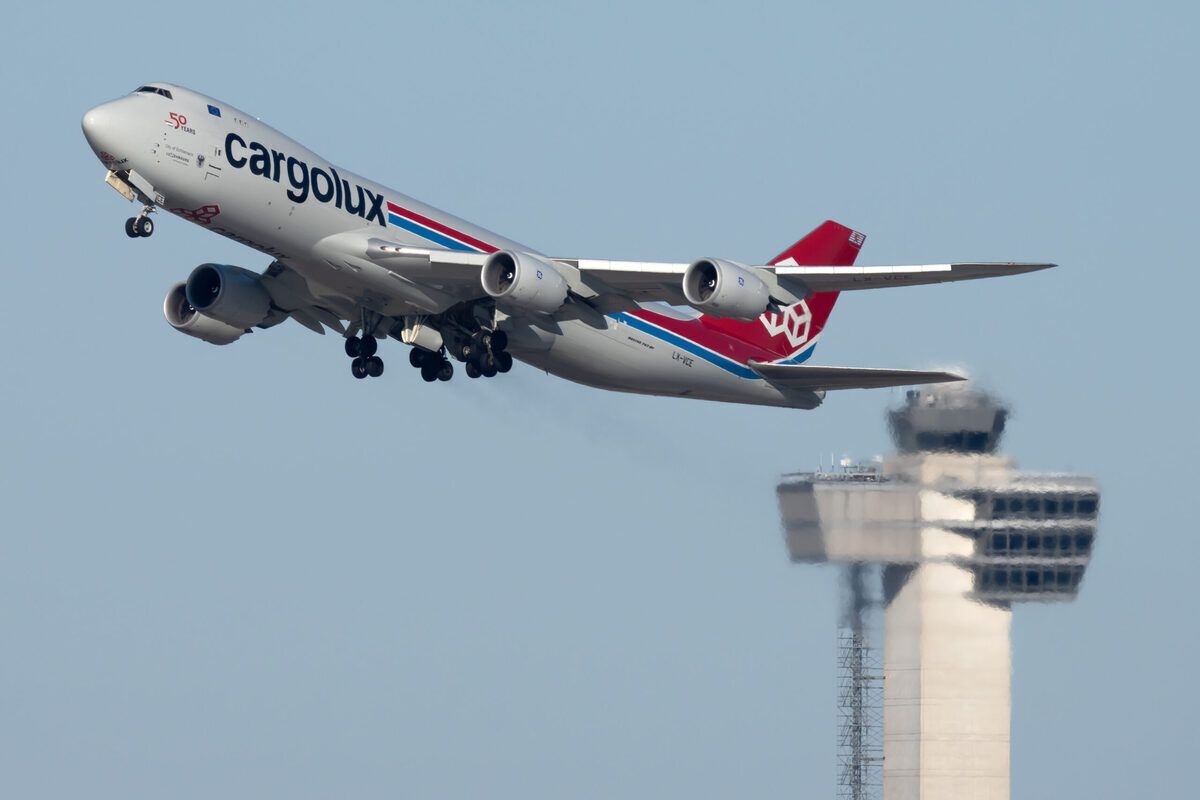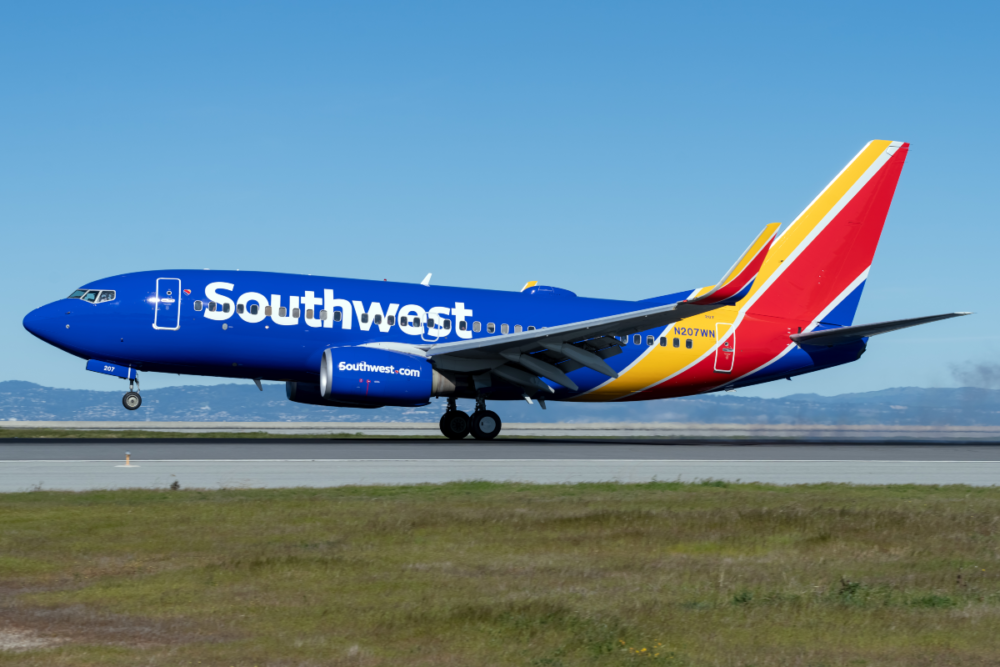A Southwest Airlines passenger plane collided with a Cargolux Boeing 747 at Chicago's O'Hare Airport (ORD) on Saturday. The jumbo struck the left winglet of the Southwest Airlines Boeing 737 from behind. As a result, both aircraft suffered minor damage.
Cargolux 747 heading to Luxembourg clips Southwest 737-700
According to an incident report on Aviation Safety Network, the incident occurred mid-evening on Saturday while the Southwest Airlines plane was waiting for a gate to open up. The Boeing 747-8F taxied past and inadvertently clipped the smaller aircraft.
The Cargolux Boeing 747-8F (registration LX-VCE) had landed at O'Hare from Anchorage (ANC) earlier in the day. The aircraft had just completed a marathon New York (JFK) - Luxembourg (LUX) - Novosibirsk (OVB) - Zhengzhou (CGO) - Anchorage (ANC) - Chicago (ORD) run.
The Aviation Safety Network reports says the Southwest Airlines plane was at A pad along taxiway TT waiting for its gate to open up. The departing jumbo taxied past. The Boeing 747 was bound for Luxembourg.
Southwest 737-700 has left winglet destroyed
The Southwest Airlines Boeing 737-700 (registration N218WN) had just operated flight WN2750 from Fort Lauderdale (FLL). Southwest's Boeing 737-700s can fly 143 passengers. However, the precise number of passengers and crew on this flight is unknown. Thirty-six hours after the incident, both aircraft remain on the ground at Chicago O'Hare.
N218WN is almost 16 years old, having been delivered to Southwest Airlines in July 2005. Cargolux's 747-8F, LX-VCE, is just nine years old, having been delivered to the cargo business in May 2012. Neither aircraft have a previous incident history.
The damage sustained by both aircraft on Saturday was described a minor. However, images on social media show Southwest's winglet was destroyed. Saturday's incident continues to run of bad luck for Southwest when it comes to winglets - several have been damaged recently.
Southwest Airlines B737-700 (N218WN) and Cargolux B747-800F (LX-VCE) were involved in a ground collision at Chicago-O'Hare Intl Airport (KORD), IL, USA. The 747 struck the left winglet of the 737 from behind resulting in damage to both aircraft. https://t.co/5dEbbxRLFu pic.twitter.com/QXhglrc3PQ
— JACDEC (@JacdecNew) June 20, 2021
" width="1000" height="667" />
Stay informed: Sign up for our daily and weekly aviation news digests.
Cargolux searches for a 747-800F replacement aircraft
Saturday's incident is noteworthy because it involves a fast disappearing aircraft type - the 747. Luxembourg-based still flies 30 of the jumbos. They have an average age of 12.6 years. While Boeing 747 passenger flights are fast becoming a rare event, cargo airlines like Cargolux continue to use the aircraft type owing to its cavernous cargo holds and impressive flying range.
But even cargo carriers like Cargolux are eyeing a future without the jumbo jets. The 747-800Fs may be reliable and not very old, but their green credentials don't pass muster in the 2020s.
Speaking at the recent Cargo Facts EMEA 2021, Cargolux CEO Richard Forson said increasingly tough environmental standards combined with a paucity of new freighter launching posed some problems for his airline.
"At this point, the latest technology is the 747-8F, that’s from 10 years ago. There are no developments, going forward."
The problem cargo operators like Cargolux face is there are no contemporary freighter replacement aircraft on the market with similar specs to the Boeing 747. While there is talk of Boeing 777X and Airbus A350 freighter programs, Richard Forson needs a hard product rather than a drawing board concept.
And while there are reliable second-hand aircraft available to buy, most of them are old and fail to meet modern emissions standards. That makes the planes environmentally unpalatable. It also makes it had to get financing for them.
That’s a dilemma a lot of airlines will face. And emissions will make it hard to get financing for second-hand aircraft,†Forson says.


